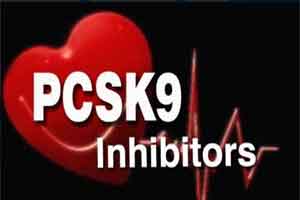- Home
- Editorial
- News
- Practice Guidelines
- Anesthesiology Guidelines
- Cancer Guidelines
- Cardiac Sciences Guidelines
- Critical Care Guidelines
- Dentistry Guidelines
- Dermatology Guidelines
- Diabetes and Endo Guidelines
- Diagnostics Guidelines
- ENT Guidelines
- Featured Practice Guidelines
- Gastroenterology Guidelines
- Geriatrics Guidelines
- Medicine Guidelines
- Nephrology Guidelines
- Neurosciences Guidelines
- Obs and Gynae Guidelines
- Ophthalmology Guidelines
- Orthopaedics Guidelines
- Paediatrics Guidelines
- Psychiatry Guidelines
- Pulmonology Guidelines
- Radiology Guidelines
- Surgery Guidelines
- Urology Guidelines
Alirocumab has maximum benefit in high risk patients or after CABG: ODYSSEY outcomes

PCSK9 Inhibitor Alirocumab benefits high-risk patients of polyvascular disease and those after CABG most according to ODYSSEY outcomes.
Alirocumab, may reduce the risk of polyvascular disease in patients with Acute Coronary Syndrome (ACS) and dyslipidemia patients, revealed the outcomes of ODYSSEY Trial (Evaluation of Cardiovascular Outcomes After an Acute Coronary Syndrome During Treatment With Alirocumab) published in the Journal of American College of Cardiology (JACC).
The study led by J. Wouter Jukema and colleagues from the Department of Cardiology, Leiden University Medical Center, the Netherlands, showed that in patients with recent ACS and dyslipidemia despite intensive statin therapy, polyvascular disease is associated with high risks of Major adverse cardiovascular events (MACEs) and death. Treatment with a PCSK9 inhibitor, Alirocumab showed significant risk reduction among this patient.
The authors conducted a pre-specified analysis from ODYSSEY OUTCOMES to determine whether polyvascular disease influenced risks of MACEs and death and their modification by alirocumab in patients with recent ACS and dyslipidemia despite intensive statin therapy.
The patients were randomized alirocumab or placebo 1 to 12 months after ACS. The primary MACEs endpoint was the composite of coronary heart disease death, nonfatal myocardial infarction, fatal or nonfatal ischemic stroke, or unstable angina requiring hospitalization. All-cause death was a secondary endpoint.
Key findings
- Median follow-up was 2.8 years. Of 18,924 patients, 17,370 had monovascular (coronary) disease, 1,405 had polyvascular disease in 2 beds (coronary and peripheral artery or cerebrovascular), and 149 had polyvascular disease in 3 beds (coronary, peripheral artery, cerebrovascular).
- With placebo, the incidence of MACEs by respective vascular categories was 10.0%, 22.2%, and 39.7%.
- With alirocumab, the corresponding absolute risk reduction was 1.4%, 1.9%, and 13.0%.
- With placebo, the incidence of death by respective vascular categories was 3.5%, 10.0%, and 21.8%; the absolute risk reduction with alirocumab was 0.4% , 1.3%, and 16.2%.
"The present findings indicate that patients with polyvascular disease comprise an easily identifiable subgroup of patients with recent ACS with a high absolute risk of MACEs and death. The large absolute benefit of PCSK9 inhibition with alirocumab, when added to high-intensity statin therapy, is a potential benefit for this group of patients. However, further studies are needed to guide the selection of patients with ACS for treatment with a PCSK9 inhibitor in the context of other established and evolving therapies in atherosclerosis, so that efficacy and efficiency are optimized." concluded the authors.
For reference, click on the link

Disclaimer: This site is primarily intended for healthcare professionals. Any content/information on this website does not replace the advice of medical and/or health professionals and should not be construed as medical/diagnostic advice/endorsement or prescription. Use of this site is subject to our terms of use, privacy policy, advertisement policy. © 2020 Minerva Medical Treatment Pvt Ltd